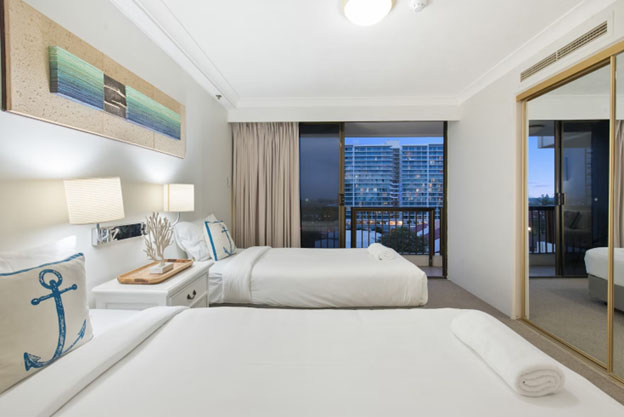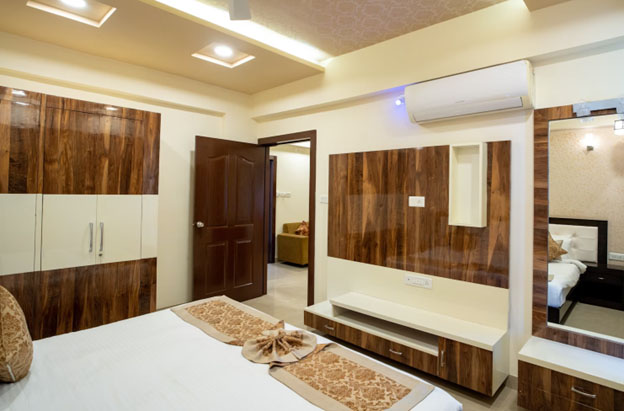The Growing Appeal of Serviced Accommodation for Modern Travellers
In recent years, the demand for serviced accommodation has increased considerably as more travellers seek alternatives to traditional hotels. The modern traveller values flexibility, privacy, and a sense of comfort that resembles home qualities that serviced apartments readily provide. These accommodations combine the amenities of a hotel with the freedom and space of a private residence, offering guests a more relaxed and personalised stay. With features such as furnished living areas, fully equipped kitchens, and on-site services, they have become a preferred choice for both leisure and business visitors looking for convenience and cost-efficiency.

Understanding Serviced Accommodation
Serviced accommodation in Melbourne refers to fully furnished lodging available for short- or long-term stays. These spaces provide the essential comforts of home while incorporating hotel-style services such as housekeeping, reception support, and sometimes concierge assistance. They cater to a wide range of travellers, from tourists and business professionals to families and those relocating temporarily.
Unlike standard hotel rooms, which typically offer limited space, serviced apartments provide larger living areas and facilities designed to make longer stays more comfortable. Guests can cook their own meals, do laundry, and enjoy greater privacy, all while maintaining access to professional cleaning and maintenance services. This hybrid arrangement gives travellers the freedom to manage their routines according to personal preferences, making it a versatile accommodation option that adapts to individual lifestyles.
The main distinction between hotels and serviced accommodations lies in their overall purpose and atmosphere. Hotels are designed for short-term stays, focusing on convenience, luxury, and standardised service. Serviced apartments, on the other hand, emphasise practicality and flexibility, offering guests the freedom to live more independently. This home-like environment, combined with professional services, allows guests to experience comfort without compromising convenience.
Why Serviced Accommodation is the Preferred Choice
Cost-Effectiveness
Serviced accommodations often present a more economical solution, particularly for extended stays. While hotel rates are typically charged per night and may include costly extras, serviced apartments are usually priced weekly or monthly, offering better value over time. Having access to a fully equipped kitchen helps guests reduce daily expenses by preparing their own meals, rather than relying on restaurants or room service.
Comfort and Convenience
The greatest appeal of serviced accommodation lies in its balance between homely comfort and hotel-like service. Guests can enjoy separate living, dining, and sleeping areas, giving them the freedom to relax, work, and entertain guests with ease. Self-catering facilities allow visitors to maintain familiar routines, while housekeeping ensures the space remains tidy throughout their stay.
Flexibility and Freedom
Serviced accommodation provides a degree of flexibility that hotels often lack. Guests can choose the duration of their stay, whether for a few days, weeks, or months, without being tied to long-term leases or restrictive contracts. This adaptability suits professionals on temporary assignments, digital nomads, and families needing transitional housing.
Ideal for Extended Stays
For longer stays, serviced accommodation is a more practical and comfortable option than hotels. The added space, kitchen facilities, and laundry amenities allow guests to settle in and feel at home. This makes serviced apartments particularly attractive to corporate travellers who spend weeks or months away from their permanent residence.
Personalised Experience
Serviced accommodation offers a more personalised and localised experience compared with hotels. Hosts and managers often provide guests with local insights, recommendations, and assistance that enhance their stay. This personal approach helps travellers feel more connected to the area they are visiting.

Comparison with Traditional Hotels
While hotels are ideal for short visits and immediate convenience, serviced accommodations are designed for those seeking a more spacious and independent stay. Hotels typically provide round-the-clock service, on-site dining, and leisure facilities, but often limit guests’ privacy and personal space. Serviced apartments, by contrast, encourage self-sufficiency, making them more suitable for travellers who prefer routine and independence.
The home-like design of serviced accommodation also contributes to emotional comfort, particularly for long-term guests. Having access to private amenities like kitchens and living areas allows travellers to create a familiar environment that supports both relaxation and productivity.
Conclusion
Serviced accommodation represents a growing trend in modern travel, appealing to individuals who value comfort, affordability, and flexibility. By combining the functionality of a home with the reliability of hotel services, it provides an ideal balance for both business and leisure travellers. With spacious living areas, personalised services, and cost-efficient pricing, serviced accommodation has redefined what travellers expect from temporary lodging. As preferences continue to evolve, it stands as a practical and versatile alternative to traditional hotels, one that delivers independence without compromising quality.
FAQs
What does serviced accommodation include?
Serviced accommodations typically include furniture, a kitchen or kitchenette, Wi-Fi, housekeeping, and all utilities. Some properties also feature shared amenities such as gyms, parking, and swimming pools.
Is serviced accommodation suitable for business travel?
Yes. Serviced apartments are ideal for business travellers requiring flexibility, workspace, and comfort during extended stays. They provide a professional yet homely setting for work and relaxation.
How does serviced accommodation differ from hotels?
Serviced accommodation offers more space, kitchen facilities, and independence, while hotels focus on short-term stays with fixed services and less privacy. Serviced apartments are designed for guests who value a personalised and self-sufficient experience.
|